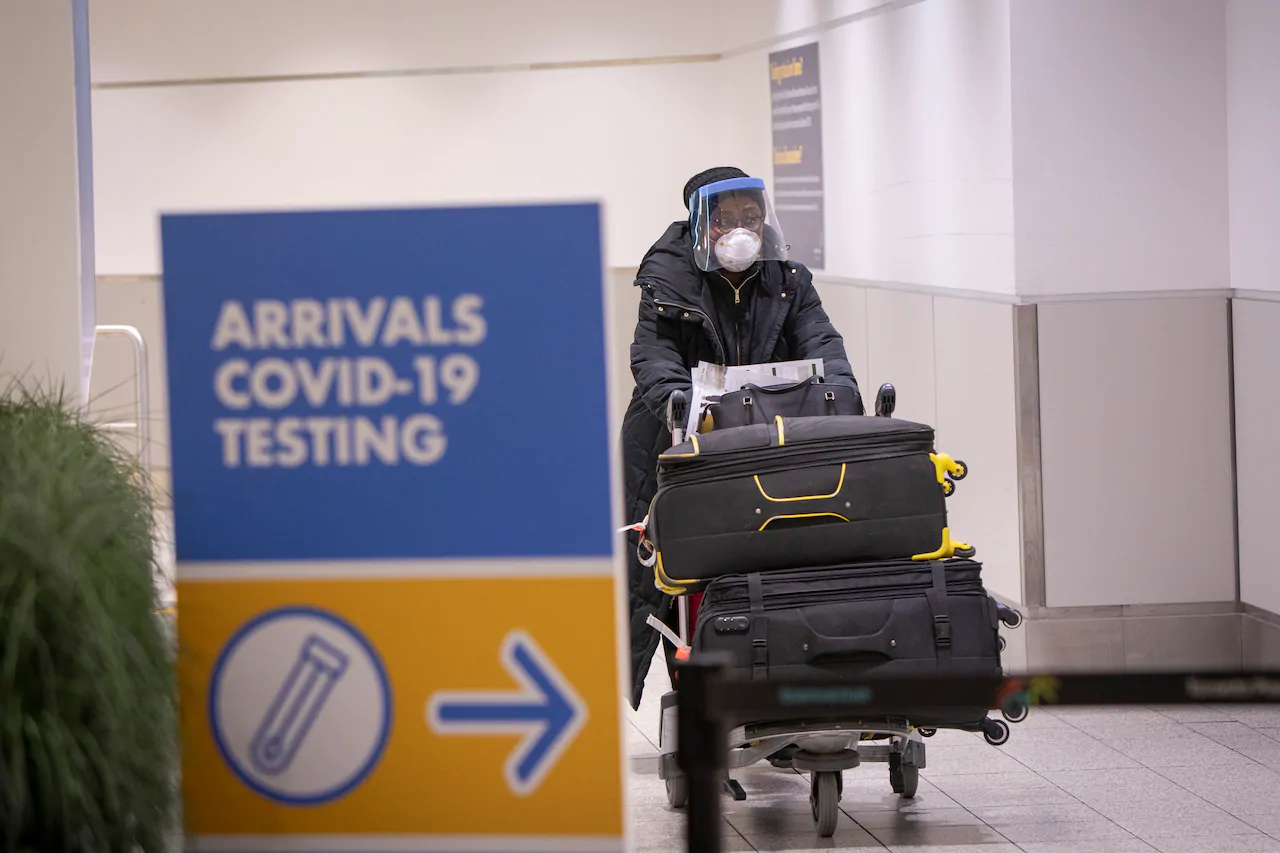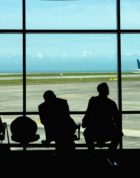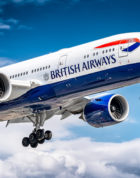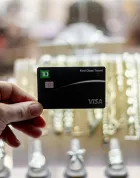On February 22, Canada implemented new measures requiring international air travellers to undergo a mandatory three-day hotel quarantine around one of four designated airports: Vancouver, Calgary, Toronto, or Montreal.
Based on travellers’ experiences thus far, I think it’s fair to say that the program has gotten off to a disastrous start, with anecdotes of travellers not being able to book their rooms, facing food shortages at the quarantine hotel, and encountering highly ineffective quarantine practices – all while being ruthlessly gouged on the price of the three-day quarantine hotel itself.
At this point, one must at least ask the question: how can the government stand by its shambolic execution of the hotel quarantine program, and what exactly is the right course of action for travellers returning to Canada?
One Logistical Failure After Another
Most Canadians understand and respect the strictness of the hotel quarantine program, and have been doing their utmost to follow the rules. Unfortunately, they’ve only encountered a series of operational failures every step of the way.
Here are just a few of the difficulties you might face if you’re returning to Canada by air these days, all of which should’ve been foreseen and mitigated by a federal government that actually has its act together.
Inability to Book a Quarantine Hotel
Many travellers have reported having to wait on hold upon calling the designated phone number for booking a quarantine hotel, racking up expensive phone bills for overseas calls, only to be eventually disconnected after several hours without reaching anyone.
@JustinTrudeau @Canada @fordnation @CanBorder @GovCanHealth super fun day attempting to book quarantine hotel for 24th that I spent 15 hours trying with zero results! Love being disconnected repeatedly! Can’t wait to do it all over again in the morning! #sarcasm #Canada #bigfail pic.twitter.com/9z8MfEwQOn
— Sandy Lynch (@SandyMargarita) February 23, 2021
If you aren’t able to pre-book a quarantine hotel, then some travellers have reported that they were given the opportunity to book a hotel after landing in Canada but before entering the country at the same prices.
But that might be easier said than done, because of…
Airlines Denying Boarding
The government has clarified that airlines should not be denying boarding to passengers who have a right to enter Canada (and can present a negative COVID-19 test within the past 72 hours), but do not have a confirmed quarantine hotel booking.
Airlines’ obligations are limited to reminding passengers that they may face fines if they don’t hold a hotel reservation.
They are not required to verify passengers’ hotel bookings, nor to deny boarding to passengers who don’t hold a reservation (say, because they spent hours unsuccessfully trying to call the phone number).
That hasn’t stopped some airlines from taking matters into their own hands, as a group of Canadian travellers in Zimbabwe experienced when they were denied boarding by Ethiopian Airlines.
Just like the rollout of the new rules requiring a COVID-19 test prior to boarding, Canada’s government has failed to communicate effectively with the airlines serving the country in rolling out this new measure.
Ineffective Quarantine Practices
When travellers arrive at one of the four airports and show that they’ve booked a quarantine hotel, they’re invited to… head into the arrivals area and take either private or public transportation (including taxis, Ubers, or hotel shuttle buses) to the hotel.
Then, they complete their check-in… while mingling in the same indoor space as other regular guests who haven’t been travelling.
What kind of quarantine measure is that?!
@CBCAlerts not all going well with new 3day quarantine hotels in Canada il prepared no food or water available at hotel have go to lobby with 30 other people this not quarantine crazy at Sheraton at terminal 3 boondoggle pic.twitter.com/H4XQ1RyjrP
— Ray Truesdale (@RaySuperurass) February 26, 2021
In other countries, international travellers are kept in their bubbles until the quarantine period is over. There are dedicated buses to bring them from the airport to the hotel. And the hotel is designated as a quarantine location and is closed-off to external bookings.
One has to question why Canada isn’t taking even a fraction of these measures seriously.
Lack of Food, Care, and Communication
Hotel guests have reported delayed or missing meal deliveries, poor-quality or insufficient meals, a lack of water, and other shortfalls in the quarantine hotels’ ability to provide guests with what they need so that they don’t have to leave their rooms.
In some cases, that has led to guests doing exactly that: leaving their rooms, going down to the front desk to seek answers, and once again mingling with other guests and hotel staff.
Mind-boggling stuff.
@Canada help at Sheraton airport boondoggle pic.twitter.com/NZ5N3KOSiG
— Ray Truesdale (@RaySuperurass) February 26, 2021
No Refunds If You Leave Early
When the policy was first introduced, there was mixed messaging as to whether guests could seek a refund from their hotel if they receive their negative COVID-19 test results and leave before the end of the three-day stay.
Most travellers’ experiences indicate that no refund has been forthcoming, rubbing further salt in the wound for travellers who’ve paid $1,000+ for a one-night hotel stay and an all-round bad time.
What Should Returning Travellers Do?
It’s been clear from the very start that Canada’s hotel quarantine rules were primarily geared towards discouraging international travel, and had very little to do with actual science-based quarantine measures.
To that end, it’s fair to say that the new rules have served their purpose as it relates to leisure travel. With an additional four-figure sum to deal with in the travel budget, it’s hard to imagine many Canadians embarking on leisure trips to the usual March Break destinations this season.
However, that doesn’t change the fact that there are still thousands of Canadians who must travel for reasons like family, work, and education. In the face of such farcical circumstances surrounding the hotel quarantine, it’s only natural to ask: do travellers have any other choice?

Regional authorities at each airport are responsible for overseeing travellers’ compliance with the hotel quarantine measures. By most accounts, they have not been taking any further action besides issuing fines for non-compliant behaviour.
Much has been made in the media about the possibility of simply refusing to undergo a hotel quarantine, heading straight home, and accepting a fine from the regional authorities that might be cheaper than the cost of a quarantine hotel (and which one might later choose to fight in court as well).
To be clear, this is in violation of the law and the Quarantine Act, and it’s not something that I’m recommending you should do.
But it is an action that some Canadians have chosen. And even though they’re technically breaking the rules, you can’t exactly accuse them of not doing their utmost to limit the virus’s spread, either. After all, they’re choosing to quarantine directly at home, instead of hopping on a shared shuttle bus and mingling with a hotel lobby full of other people.
Keep in mind that a violation of the Quarantine Act can carry more severe penalties including hefty six-figure fines and prison time. Those who choose to contravene the Quarantine Act likely hold the belief that these maximum penalties wouldn’t be enforced, but it’s up to each individual to decide how comfortable they are with the risks here.

One other alternative to the three-day mandatory hotel quarantine is to enter Canada via the land border instead.
As long as you can show proof of a negative COVID-19 test within the past 72 hours, you can cross the land border without undergoing the hotel quarantine. But in the absence of scheduled buses, trains, and one-way car rentals these days, this will likely present a significant logistical challenge as well.
If you don’t have a vehicle of your own that you can drive across the border, you’d need to arrange transportation to the US border, cross the border on foot, and then arrange your own transportation from the Canadian side.
The extra time and money involved may not be worthwhile in the end compared to the $1,000+ hotel quarantine, as much of a shambles as it may be.
Personally, I have an upcoming trip planned to China to visit my family later in the spring. Even though I’ve always intended to following the quarantine rules wherever I go, I must admit that the nightmarish rollout of Canada’s hotel quarantine measures have given me pause about how I plan my return.
I don’t feel comfortable brazenly breaking the rules and going home, but I’d be lying if I said I wasn’t tempted to skirt them and plan a return journey via the land border instead of a direct flight into Canada.
Of course, the outcome I’m hoping for is that Canada will finally show something resembling decisive leadership and competence, which has been sorely absent throughout all of the travel restrictions that we’ve had over the past year.
The federal government has now said that it’s working to address the myriad issues that have confronted returning travellers over the past week, so my hope is that we’re able to start running a smoother, fairer, and safer hotel quarantine operation over the upcoming weeks – one which no longer puts us to shame compared to other countries around the world.
Conclusion
The launch of Canada’s new hotel quarantine measures have been marked by poor messaging, chaotic conditions, and ineffective quarantine measures. For those of us who have been closely following the federal government’s haphazard travel restrictions over the past few months, this might not even be much of a surprise.
Some travellers are choosing to skip the hotel quarantine and head straight home, which may appear more favourable from both a monetary and an epidemiological standpoint, even if it’s in violation of the law.
While I don’t advocate for this, I do think the current situation is downright unacceptable, and the government urgently needs to step up its handling of the hotel quarantine measures to keep things from descending further into a complete farce.
If you’re travelling to Canada by air in the near future, I’d recommend joining the Canada Hotel Quarantine for Returning Travellers Facebook group to learn from others’ experiences and ensure as smooth a journey as possible.
I’d also like to hear your thoughts on the sorry state of Canada’s quarantine hotels, whether in the comments below or in one of the ever-growing threads over on the Prince of Travel Elites Facebook group.



















Many Canadian travelers to the USA are simply avoiding this quarantine hotel issue by flying into a border city like Plattsburgh, NY, or Buffalo, NY then getting a car to the Canadian border, go through boarder control, walking across the boarder where there are NO quarantine hotel protocols, and then get picked up from the Canadian side of the border by someone. OR some even rent a one way car (the cost is less than a quarantine hotel). A simple hack that is used over and over again. Rather surprised that government boarder protocols do not shut this down. Either all rules apply to cross boarder travelers or they don’t.
This has been a helpful article. I was wondering that can my parents come to Canada with visitor visa. I am a PR and my sibling is a citizen. We agree to 14 day quarantine and mandatory hotel stay. Anybody has practical experience?
Let’s never book in the future a hotel that supports quarantine
Check this link for reference:
https://orders-in-council.canada.ca/attachment.php?attach=40252&lang=en
In section 33 it states this act ends on April 22.
This appears to be referring to quarantining for 14 days in general, not specifically quarantining at a hotel for 3 days before returning home to complete the rest of the quarantine. My understanding is that the “official” end-date for the 14-day quarantine requirement has been pushed back month after month since the beginning of the pandemic; it’s currently slated for April 21 but will almost certainly be pushed back beyond that.
Yes, you are right. But it has referred to the mandatory hotel quarantine in clause clause (1)(a)(ii). Hopefully, they’ll only extend the 14-day general quarantine and exclude the 3-day hotel stay.
Cessation of Effect
April 21, 2021
32 This Order ceases to have effect at 11:59:59 p.m. Eastern Daylight Time on April 21, 2021.
The quarantine act has not been updated recently so I struggle to understand how not going to a quarantine hotel would be a violation of the quarantine act.
Sorry for the long post. I wanted to share another incredibly frustrating experience. I landed on 1st March. Honestly this was one of the best flight experiences as I used TJ’s “Latitude Attitude” trick to get a Air Canada Business long haul for much lesser miles. However, the best part ended the moment I stepped out of the aircraft. I was traveling alone and had a non-refundable hotel booked for 3 nights. The border agency checked my declaration form, passport and hotel booking. Subsequently, he told me I will have to quarantine for 14 days, which of course is obvious. Thereafter, he put on an orange sticker on my passport. At that time, I did not know the meaning of this color, I was like its probably got to do with something internal as I was traveling after 14 months. When I handed over the declaration form after collecting the baggage (this was T1), I went and met the folks who direct the flow of traffic towards the covid test hub. To my utter surprise, I was asked to go home. I was shocked, I told repeatedly that I don’t think I belong to the exemption list, but they refused to listen. The fact that the hotel booking was non refundable made it all the more confusing. I was at the airport for 90 more minutes, spoke to 7-8 diff security and related personnel, even went up and spoke to inquiry. ALL of them told me that if I have an orange sticker I could go home, this left me thoroughly confused and a little frustrated as well. I knew the hotel was non refundable but at the same time I did not want to “break the rules”. In fact one the security personnels got a little pissed off at me saying “Sir, how many times will you check for the same thing. Please go home, this is what the border agency has told you”. Well, at my end I was afraid but I took the chance and came home. Thereafter, I spent 3 hours over the phone once I reached home. These calls were to Toronto Public Health, Service Ontario and Canada Border Agency. The first 2 flat out refused to help me, stating this is a federal matter. Border Agency told me that “I cannot help you much as I do not have the capacity to look at case by case details. However, it is left to the officer at the airport to determine what type of quarantine you will need”. CBA officer was extremely polite and told me I should not have anything to worry, also she said that since I live by myself, maybe this is why you were asked to go home. By this time, it was already 3pm. I called up many people and still dont know what went wrong. It could be that the border agency made a mistake. But in any case, the fact that I had a non-refundable hotel booked made it a difficult pill to swallow. I must mention that I spoke to 5-6 people that day at T1 who were in the same position as myself, i.e. having a hotel booked but asked to go home.
That must have been quite a perplexing experience to go through, once again speaking to the shambolic execution of this whole thing. I’d definitely recommend trying a credit card chargeback for that hotel booking.
“Canada will finally show something resembling decisive leadership and competence” – alas, not with this current Prime Minister. Terrible leadership and incompetence is his M.O. He needs to go.
Another consideration for any upcoming trip to China: https://www.thetimes.co.uk/article/china-makes-anal-swab-covid-tests-compulsory-for-foreign-arrivals-mvthjq8c7
Does that apply for Chinese Nationals though?
Pretty sure this just a (somewhat petty) way to assert some kind of dominance through embarrassment of selective individuals.
I could be wrong but I would think that someone with a Chinese passport wouldn’t be subject to a poop probe.
Apparently it’s being used on some (not all) foreign arrivals, both Chinese nationals and foreigners. The reasoning behind it appears to be science-based (as a more effective way to detect cases) rather than dominance assertion.
Needless to say I’m pretty bummed out about this possibility, but it also isn’t the end of the world.
“Bummed out” lol – well played.
On the day of your return, have Jessy and a friend within her bubble, drive down in separate vehicles to your nearest land border crossing. Drop one vehicle off, so it is left at your disposal upon your return on foot (pending any license hiccup) 😃. Or postpone the dates (if an option) to after April 30th since reportedly that might be the last day this mandatory “hotel-quarantine” is even a thing.
It’ll likely be a while after April 30, but I’m curious if there’s a source for this end-date as I haven’t seen one.
I don’t believe there is an official source out yet with the date, as I’m sure once that knowledge became public, the leisure travelers would adjust accordingly. I saw the DP in one of the many FB hotel groups. A recent traveler was staying at one of the designated quarantine hotels and was told “direction from the government is that this is through to the end of April, primarily to deal with spring break travelers”. Not much but trying to be optimistic.
Just my two cents. Why you complain about your trip going back to China? Your concern should be 14+7 quarantine in China and then you stay in China for a few weeks I supposed in order to justify the quarantine days. by then its late spring and early summer. I’m pretty sure the hotel quarantine stuff will be ended by April 30. So, have some common sense, don’t add oil to the fire.
Where are we getting the April 30 date? That’s only the date that the flights to Sun destinations have been cancelled, as far as I can tell, with the hotel quarantine remaining in place until further notice.
I think the references to April 30th are a confusion with the federal government’s suspension of flights to the Caribbean and Mexico until April 30th. I have not yet found anything that says that the quarantine hotel program is intended to end on April 30th.
Trudeau’s announcement has that. He said it
Me thinks they put Ja Rule in charge of this program
An ever shoddier operation than the FedEx website.
Ignore it, leave, and deal with the fine in court should one be issued.
It is clear this program is not thought out at all so don’t play into this BS. I’m all for following rules during the pandemic, but this is just a cash grab and a joke.
So I landed on March 1 at 5:30am. There is complete chaos on what the rules are. Everyone seems to have their own interpretation of what the rules are.
1) Spent 3 days trying to find a hotel to quarantine, although at that time the hotels were limited to under ten.
2) After landing and completing the immigration formalities and COVID test, we waited another 90 mins for a shuttle only to be informed that we have to take a taxi and not the shuttle and pay for it by ourselves. Charged us $40 for a 3 min taxi ride.
3) Post getting to our hotel, they said they would not give us a room until 2 pm and we argued that this should have been mentioned earlier and we called multiple times to the hotel to confirm that we would get a room.
4) Next the property decided to increase the already agreed rates and charge us $70 extra per night for no reason. Even though we had a booking confirmation.
5) The rooms were fine but the food was cold and stale. The food is delivered at odd times and sometimes dinner is served at 5. We decided to order through Uber eats and it took 45 mins from the front desk to get to our room.
6) The service is awful. To get toiletries we need to often wait for hours and send multiple reminders to get any decent service.
7) We got out negative COVID results on the second day and asked if we could leave early and as this post suggests, they refused to issue a refund.
Overall after paying exorbitant costs and trying to follow the rules, it’s such an unwelcoming experience and most certainly happy to be done with the hotel part of our quarantine. But the only people benefitting from all of this is the hotels because they can literally escape with not doing anything as they are in high demand and can up charge based on their demand. We definitely believe in following all the regulations but the Canadian government really needs to enforce and oversee the disastrous process currently in place.
I stayed at that hotel in November. They double charged me, and I had to open a credit card dispute to fix the issue, because the hotel initially replied they didn’t see the double charge. So watch your credit card statement.
Thanks Margot. I will keep an eye out for the charge.
Parth feel sorry for you! Our incompetent govt has done it again! What an embarrassment. This whole thing has been a disaster for Canada. The implementation and planning is about 11 months too late. I see the states is opening up slowly! I hope we do better next time
Thanks for your kind message. Like you mention Canada was quick to implement but gave no thought process on the logistics and also 11 months too late. Fingers crossed the process is more streamlined for others.
Thanks for sharing your experience Parth, sorry you had to go through such a negative time.
Ofcourse. Just tying to make the other members aware of the experience so that they know what to expect and hopefully make alternate hotel arrangements for a better experience.
What hotel pls?
Marriott Toronto Airport
Hope you got your MB points
An overall fair take down of the new policy. They had ample time to properly implement along the way and failed in meaningful ways, losing additional goodwill with people returning in good faith to Canada.
I’m unsure if this works, but you can actually book online the quarantine packages instead of calling. It shows up in the Canada deal section on the marriott bonvoy website (https://www.marriott.com/offers/Local-Package-Offer-OFF-16573 or using the promotional code LPR).
Kinda funny that it appears in the deal section but lol.
Online reservation became available many days after Feb 22 when the mandatory hotel quarantine started.